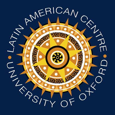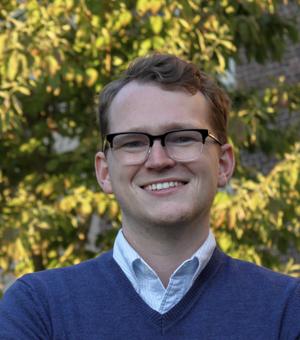Dr Daniel McDonald
I am a historian of modern Latin America who specializes in the study of Brazil. Currently, I hold a joint appointment in the Faculty of History and the Oxford School of Global and Area Studies and am an associate member of St Antony’s College. I joined the Latin American Centre as a Postdoctoral Fellow in 2023 as part of a transnational project, “The Global Pontificate of Pius XIII: Catholicism in a Divided World” convened around the recent release of records from the papacy of Pope Pius XII (1939-58).
My research centers on the history of citizenship and inequality with thematic focuses on urban history and the Catholic Church in Latin America. I have published or have articles forthcoming on these topics in journals including The American Historical Review, The Hispanic American Historical Review, The Americas, and the Journal of Urban History, the last of which received an honorable mention for Best Article in the Humanities from the Latin American Studies Association Brazil Section as well as for in public-facing outlets like the Washington Post and ReVista: Harvard Review of Latin America.
My current book manuscript, Peripheral Citizenship: Popular Movements and the Catholic Church in Urban Brazil, is under contract with the University of California Press. Peripheral Citizenship explores how grassroots movements in São Paulo’s urban periphery largely composed of rural migrant women and affiliated with the Catholic Church negotiated the simultaneous rise of the megacity and the transition from authoritarian to democratic rule. Drawing on a collaborative digitization project and over fifty oral histories, Peripheral Citizenship goes within these movements to trace how they envisioned, articulated, and modeled alternative understandings of rights and democracy across Brazil’s civil-military dictatorship (1964-1985) and the subsequent transition to democracy.
The collaborative digitization project that I undertook for Peripheral Citizenship led to what has become an essential area of scholarly inquiry for me in the digital and public humanities. This work centers on how historians can partner with historically marginalized communities to preserve their memory and enhance local capacity to undertake future projects. In São Paulo, I directed the Grassroots Archive Digital Initiative (GADI), an effort to organize and digitize historical documents held by grassroots movements in the urban periphery. GADI led me to become a principal investigator for Favelas.br, a transnational network of favela associations and allied academics committed to systematizing archiving and digitization practices from the periphery. I work extensively as well in digital applications such as through my historical GIS project, Mapping the Megacity, and experimental methodologies like Urban Intermedia.
I also deeply value collaborative work within the academy. I am co-editing with Felipe Loureiro of the Universidade de São Paulo an edition of Latin American Perspectives, “Revisiting the Brazilian Transition to Democracy” set to coincide with the 40th anniversary of the restoration of democracy in Brazil in 1985. Similarly, I am an associated researcher on a FAPESP-funded project on intelligence and diplomatic archives related to U.S.-Brazilian relations during the dictatorship.
Prior to coming to Oxford, I held postdoctoral fellowships at Harvard University and the University of Rochester. My research has been supported by a Fulbright-Hays DDRA Fellowship, the Tinker Foundation, and the Harvard-Mellon Urban Initiative, among others. I received my PhD in Latin American and Caribbean History from Brown University.




